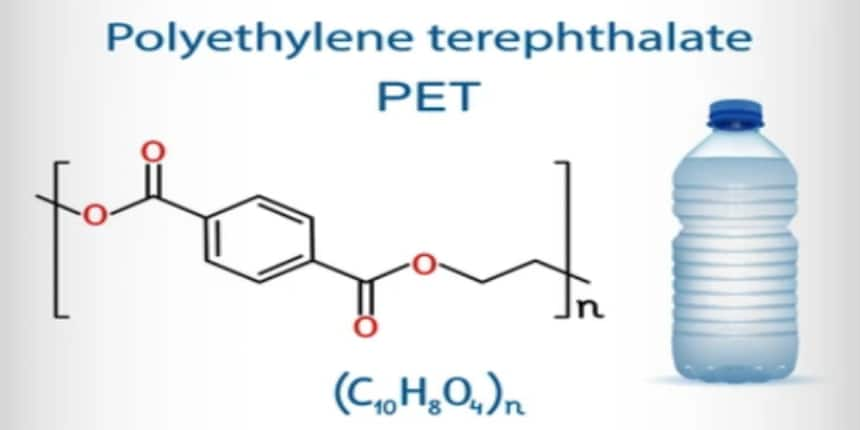PET Full Form
What is Full Form of PET ?
PET is an abbreviation for Polyethylene Terephthalate. It is a transparent, durable, and shatterproof plastic that is extensively used in the production of plastic bottles, film packaging, textiles, automobile moulded components, and so on. It is incredibly flexible and colourless in its natural condition. It can, however, be stiff or semi-rigid, depending on the processing procedure. PET is chemically extremely similar to Polybutylene Terephthalate. It belongs to the polyester family of polymers and is a general-purpose thermoplastic polymer. Polyester resins have several qualities, including thermal and chemical resistance and mechanical and dimensional stability. Because of these characteristics, it is one of the most recycled thermoplastics.

Making PET
It is formed by the polycondensation reaction of monomers obtained through the esterification of terephthalic acid and ethylene glycol. Another method is the trans-esterification reaction of dimethyl terephthalate and ethylene glycol. PET is obtained in molten form, which may then be spun into fibres or moulded into various shapes.
Chemical Properties Of PET
Resistant to dilute acids, alcohols, greases, and oils
Less resistant to diluted alkalis and aromatic hydrocarbons.
Physical Properties Of PET
Light-weight and strong
Good electrical insulator
Shatter-resistant
Moisture and gas barrier properties
Uses Of PET
For manufacturing bottles
Making packing trays
In manufacturing PET film
In creating mesh and polyester textiles